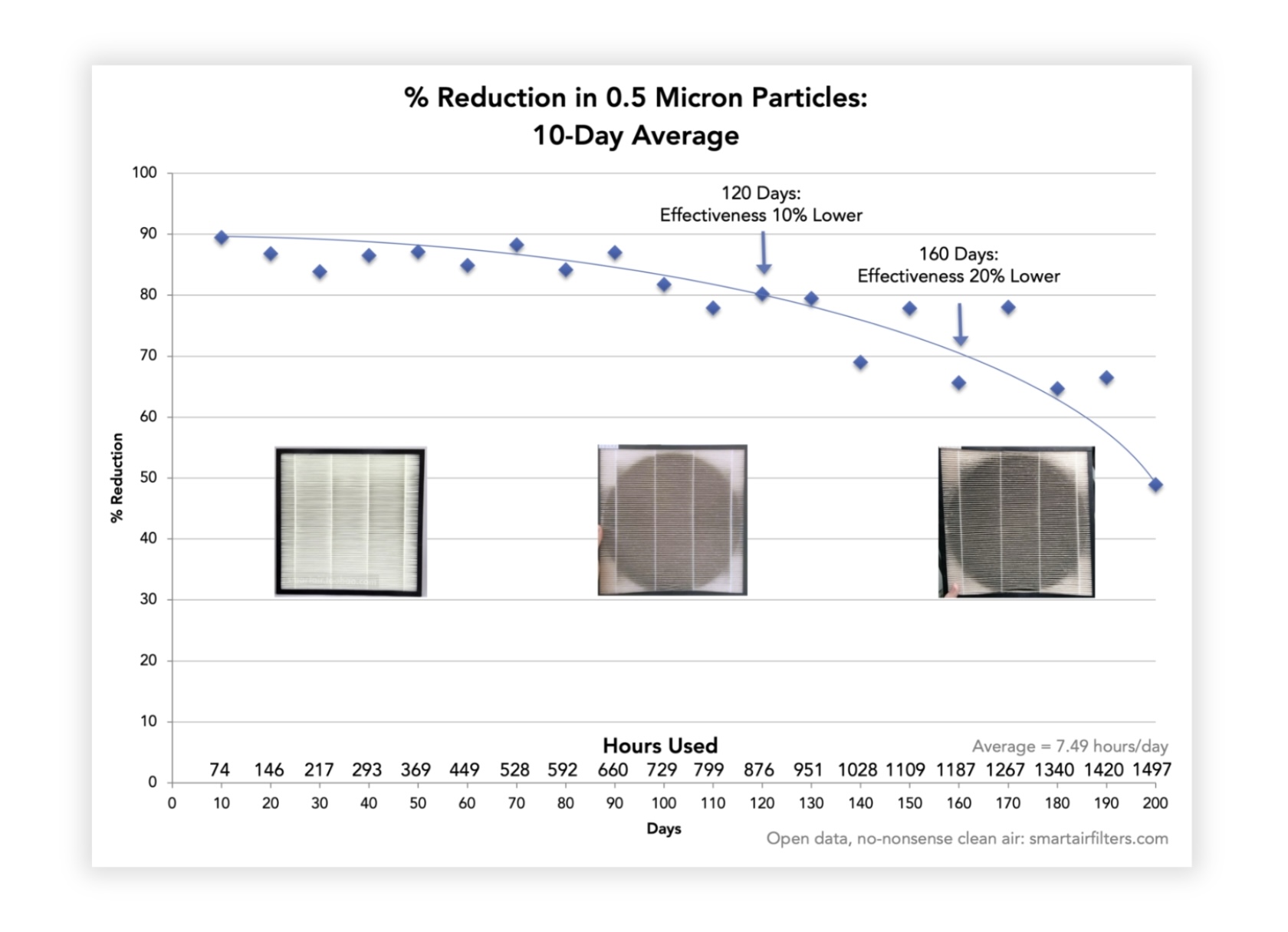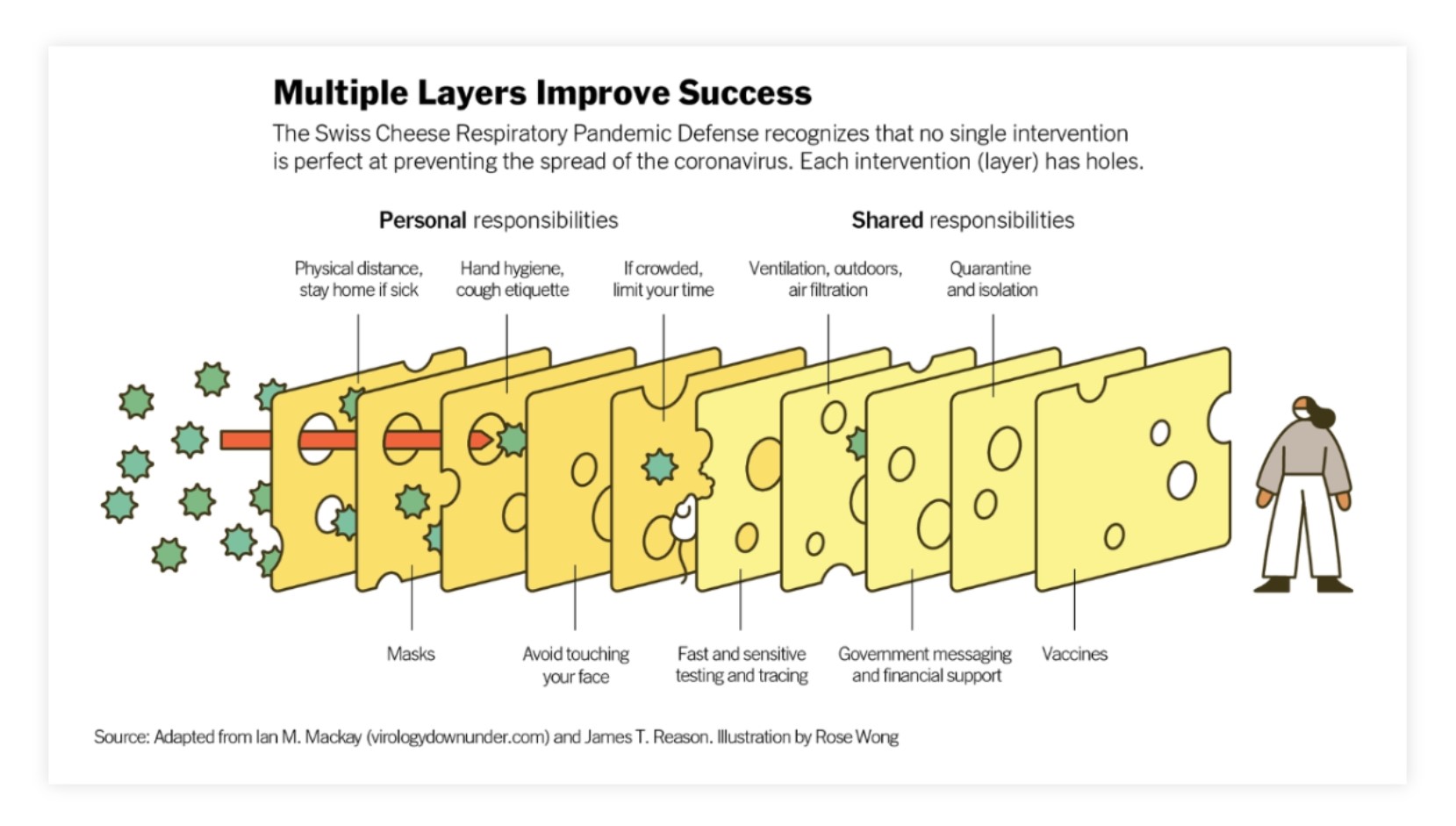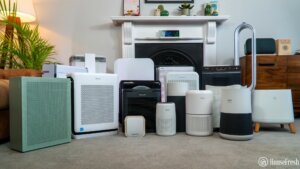The COVID-19 pandemic fundamentally changed how we operated as a society. The “new normal,” a concept coined in 2008 after the financial crisis but then promptly forgotten, made a jarring comeback.
Fast-forward to 2024, a few years after the worst of the pandemic, and things seem to have returned to the “old normal.” But still, it’s crucial not to become complacent. According to the CDC, 123.5 out of 100,000 people in the U.S. still get hospitalized for COVID-19, which means taking care of your air quality to prevent the spread of viruses and pathogens remains essential.
But you may remember that there was a time when we weren’t sure how exactly SARS-CoV-2 spread. It wasn’t only until May 2021 that the CDC updated its guidance and acknowledged the virus was airborne. The World Health Organization then corroborated that in December 2021 and has updated their definition to “through the air transmission” in April 2024.
All this (finally) leads us to the pressing question: Do HEPA filters really remove airborne viruses? Let’s examine how they work to see what they can do for the regular consumer.
What HEPA filtration science says about virus removal
HEPA (high-efficiency particulate air) filters are pleated sheets of the thinnest fibers intertwined to form a maze. According to the Environmental Protection Agency, HEPA filters can remove at least 99.97% of dust, pollen, mold, bacteria, and any airborne particles with a size of 0.3 microns (µm).
But this doesn’t mean that it only works on particles this size.
HEPA grades are given for particles of 0.3 microns because these are the most penetrating size and the hardest to deal with by a filter.
In fact, HEPA filters can pick up smaller particles more easily. This is because the virus particles are pushed around by gas particles, increasing the chance of colliding with the filter fibers.
Viruses range from 0.02 to 0.5 microns. Influenza (the common flu) and SARS-CoV-2, for example, are approximately 0.1 microns. This means virus-size particles can easily be removed with HEPA-grade filters.
There have also been several studies that look directly at how well air filters work at removing COVID-19 virus particles.
Research carried out on coronavirus wards at Addenbrooke’s Hospital suggests that air filter machines removed almost all traces of airborne COVID-19 virus. To corroborate that research, a Japanese study showed that filtration using HEPA filters can consistently remove infectious SARS-CoV-2 from the air.
Bottom line: HEPA filters can effectively deal with airborne viruses.
There’s a lot of scientific research on how activated carbon filters can remove viruses and bacteria from water. Unfortunately, outside of the water, activated carbon filters can only adsorb gasses in the air, so they won’t do anything for airborne virus particles.
Five tips for using an air purifier when you’re sick
Research has told us that air purifiers are effective tools for fighting off viruses. If it’s within your budget, you might want to consider investing in one to help ensure you keep a healthy home environment.
Here are some things to consider when using an air purifier to stave off sickness.
Tip #1: Make sure the air purifier has the right CADR for your room size
CADR (or clean air delivery rate) is how air purifiers are rated based on their particle removal performance.
A small air purifier will be too weak for a huge space, so you will want to choose one with a CADR high enough to provide at least 4.8 air changes per hour (or ACH).
As a rule of thumb, choose large air purifiers for large rooms, and be wary of tiny devices, as they are unlikely to provide enough air changes per hour in even the smallest of rooms.
Be aware that each room of your house will need an air purifier, so look for the right size for each room you want to keep clean.
We created a CADR calculator to make this easy to quickly figure out what is the right CADR for a specific room.
Tip #2: Run the air purifier 24/7
According to Faye McNeill of Columbia University, air purifiers’ auto modes aren’t adequate when trying to filter out airborne viruses or pathogens. Instead, you should run your air purifier at its strongest setting 24/7 while you or anybody in your household is sick to maximize the filtration of pollution and pathogens.
Tip #3: Place the unit strategically
If you live in a small apartment and have a very large air purifier that can cover it entirely, you won’t have to worry about this too much. If not, experts suggest placing the air purifier three feet away from the person who is sick. Make sure there are no objects or walls blocking airflow.
Tip #4: Keep your pre-filter clean
Many air purifiers include a pre-filter used to catch large particles. Unless you clean it regularly, a dirty pre-filter can reduce the effectiveness of your device by up to 40%.
Through our own tests, we confirmed that dirty pre-filters can impact performance. So, we recommend purchasing air purifiers with a removable pre-filter to make it easier and healthier for you to vacuum and wipe them (or rinse them if it’s a washable pre-filter) every few weeks.
Tip #4: Change the filters periodically
HEPA filters become more effective at capturing particles over time, but all the trapped particles eventually clog the filter, making it more difficult for air to pass through it.

That is why it is important to replace your HEPA filter periodically.
Many air purifiers have in-built systems that notify you when the filter needs to be replaced. However, as a general rule, you should assess whether you need to replace your filters every six months.
When replacing a dirty HEPA filter after sickness, wear protective gear (face mask, goggles, gloves) and place the used filter in a disposal bag. This is also a good moment to give your air purifier a disinfecting scrub.
Yes, HEPA filters will help remove viruses from your air
The tiny particles associated with viruses like COVID-19 and influenza are so small that our bodies naturally can’t block them.
The good news is that HEPA, which was initially designed to protect workers from radioactive materials, is extremely effective at capturing these tiny airborne particles.
However, this doesn’t mean that HEPA will reduce risk to zero. HEPA filtration is just one layer of the “Swiss Cheese Model.”

To maximize your protection when someone is sick in your home, you should still consider minimizing contact with that person (although we know that might not be at all possible in some cases) and ventilating your house.
SOURCES
- Advisory Board. (2022). The coronavirus is airborne. Why did WHO take 2 years to say so? advisory.com
- Association of Home Appliance Manufacturers. Air Filtration Standards. ahamverifide.org
- Bar-On Yinon M., et al. (2020). SARS-CoV-2 (COVID-19) by the numbers. ncbi.nlm.nih.gov
- Camfil. (2023). HISTORY AND FACTS ABOUT HEPA FILTERS. camfil.com
- Centers for Disease Control and Prevention. (2023). COVID-NET Interactive Dashboard. cdc.gov
- Environmental Protection Agency. (2024). What is a HEPA filter? epa.gov
- Martineau, Kim. (2021). Do HEPA Filters Really Catch Coronavirus Particles? columbia.edu
- NHS Cambridge University Hospitals. (2021). Air filters on wards remove almost all airborne Covid virus. www.cuh.nhs.uk
- Nuwarda, Rina Fajri, et al. (2021). An Overview of Influenza Viruses and Vaccines. ncbi.nlm.nih.gov
- Rabin, Roni Caryn & Anthes, Emily. (2021). The virus is an airborne threat, the C.D.C. acknowledges. nytimes.com
- Santanachote, Perry. (2020). What You Need to Know About Air Purifiers and the Coronavirus. consumerreports.org
- Ueki, H., et al. (2022). Effectiveness of HEPA Filters at Removing Infectious SARS-CoV-2 from the Air. journals.asm.org






